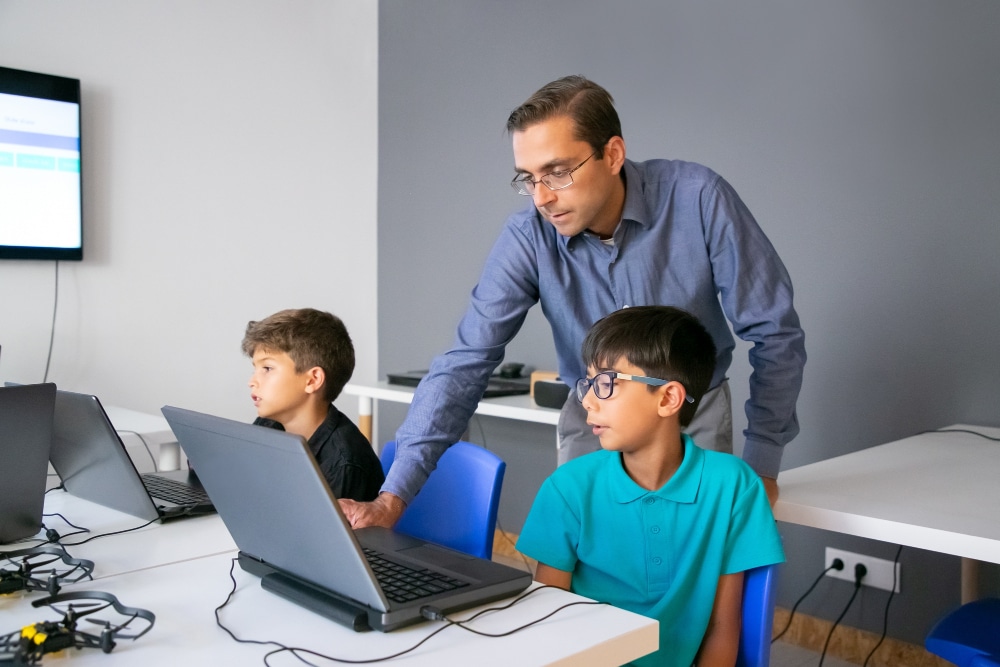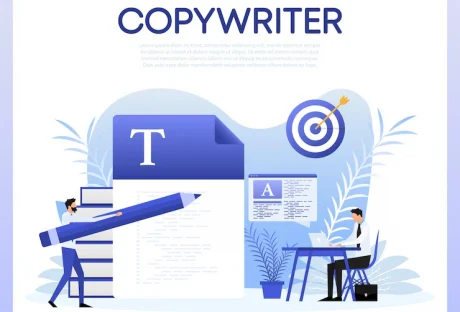Collaborating with innovators at Digital Promise, some brilliant minds at Google got together with some more at EdTechTeam to come up with a modern-day training program for teachers with a focus on making superb use of technology in the classroom teaching setting. This comes as much welcome news at a time when the government is launching into a cost-cutting mode for educational sectors in the USA, leaving many public schools rushing to cover their expenses for education in all fronts. The new teacher-training program announced by Google in association with Digital Promise and EdTechTeam will focus on imparting technological education for the teachers, enabling them to use that knowledge in classroom settings and to share that knowledge with educators.
The Dynamic Learning Project at a glance :
The Dynamic Learning Project (DLP) is a pilot of the teacher-training project brought to fruition by Google, Digital Promise, and EdTechTeam. The training program will focus on equipping the teachers with the necessary knowledge and resources to use technology in day-to-day classroom teaching experiences. Through the use of the technological resources at their disposal, the educators will be able to open newer vistas of knowledge for the students, thus bridging the gap between learning and technology successfully in the digital age.
50 middle schools from five states in the USA have been selected for the pilot of DLP. The states in the country that will be the first to receive the results of this unique and beneficial training program are Texas, Pennsylvania, South Carolina, California, and Alabama. If the reports from Google and EdTechTeam are to be believed, the coaches at the teacher-training program will be looking to provide customized learning solutions for teachers so that they can make the best use of technology that is available within the infrastructural framework of the schools. The DLP not only focuses on helping teachers to learn to use the Google resources, but other hardware or software platforms that are available and they are comfortable using.
Integrating learning with the assignment help of the latest technological advancements, the teachers from the 50 middle schools have started to undergo training under the able guidance of experts from EdTechTeam and Google. The disparity between the uses of technology in a traditional classroom setting has been more pronounced in the last few years despite most of the schools equipping themselves with smart learning software and hardware platforms in the country. As Liz Anderson from Google for Education states in her blog post for The Keyword, “This second-level digital divide is fueled by major differences in how effectively that technology is being used for teaching and learning.” DLP aims to overcome precisely that. By enabling the teachers to become tech-savvy within the classroom setting, the program imparts in them the invaluable knowledge of putting technology to good use so they can share that with their fellow teaching community.
What this means for educators and classroom teaching
“A good teacher can inspire hope, ignite the imagination, and instil a love for learning.”
- Brad Henry (American politician and lawyer)
Sometimes alluded to as the noblest profession on earth, teaching is the profession that creates all other professions. Whether we are diplomats, astronauts, dancers, chefs, or motivational speakers, all of us started from school someday, and the teachers were there for us to teach us the basics of all that we have learned so far. The significant role of the educators in our lives is thus undeniable, and the new teacher-training program launched by Google acknowledges just that. In the sphere of education, the new technical training program for teachers in the middle schools chosen for the pilot of DLP will be able to bring about a refreshing change in the way teaching was envisioned so far.
The pilot started off with Google sanctioning a $6.5 million grant to Digital Promise for conducting the research and implementing the professional skill development program for the teachers. EdTechTeam aided in creating a viable model for the training program that takes into account the resources within the school framework and the individual needs of the teachers undergoing the training program. The program has been in place since last fall, and the teachers from the schools that have selected from the programs are to be monitored and evaluated on the basis of their acceptance and performance within the existing framework. Based on the reports prepared from the pilot, Google aims to launch this program all over the country, creating a network within the teaching community for sharing knowledge on advanced technologies.
The teacher-training philosophy of the program has three fundamental benefits for the teaching community in a whole and is expected to form the foundation stone for many such innovative projects and programs in the coming years with more innovators and educators coming forward to make learning through technologies a fun and achievable reality. The primary focus of the pilot DLP thus aims at empowering teachers in the following ways.
- Localization and empowerment within the teaching community is the first goal of this program. Through the course of the training program, teachers will be able to have in-depth knowledge on the learning resources that they have at their disposal to make classroom learning more innovative and will be able to use the resources for the completion of complex tasks as well.
- Secondly, through the custom-made design of the program, the teachers will be able to infuse their pedagogy within the technological framework and not the other way round. This way, the challenges in the classroom will be overcome more quickly while supported by modern education technology.
- Lastly, this program opens up a world of possibilities for further research within the educational sphere. Based on the success stories of this program, Google and its partners will be able to focus on the development of a teacher-training program in a much larger scale for the future that includes the entire country in the coming years.
Enabling the teachers to focus on equipping themselves with the resources of the modern age, this program brings the opportunity towards further networking and knowledge-sharing possibilities among the teaching community. DLP is thus a program of the future that aims to bridge the gap between traditional pedagogy and advancements in technology for education.
Read Also :






















